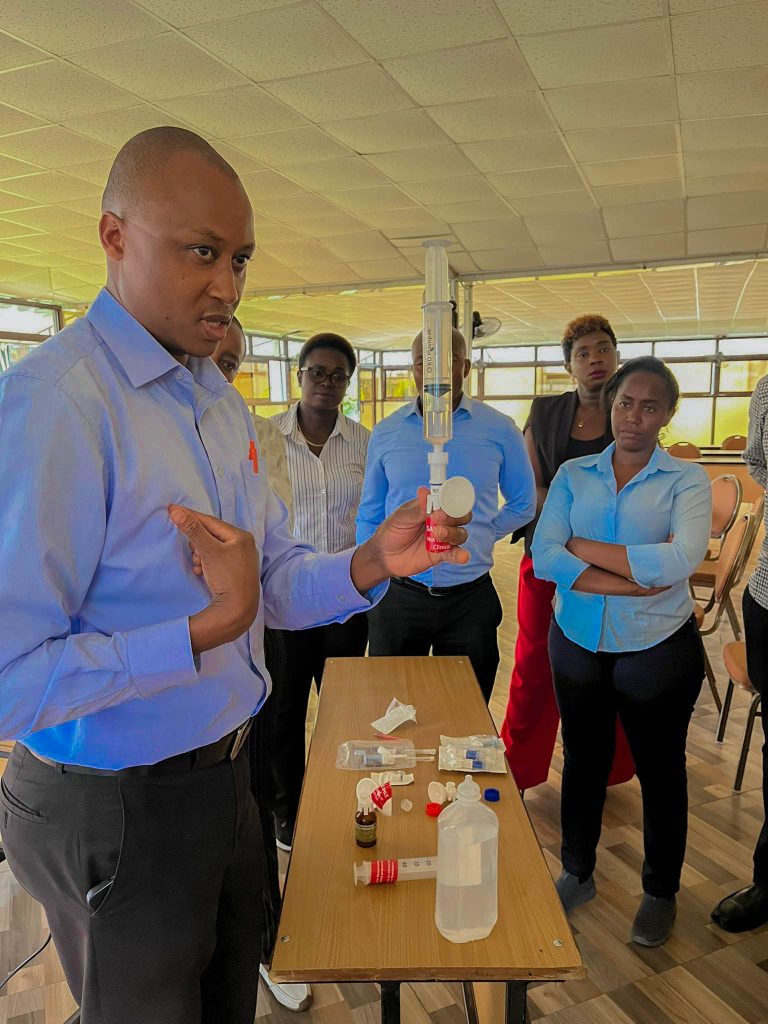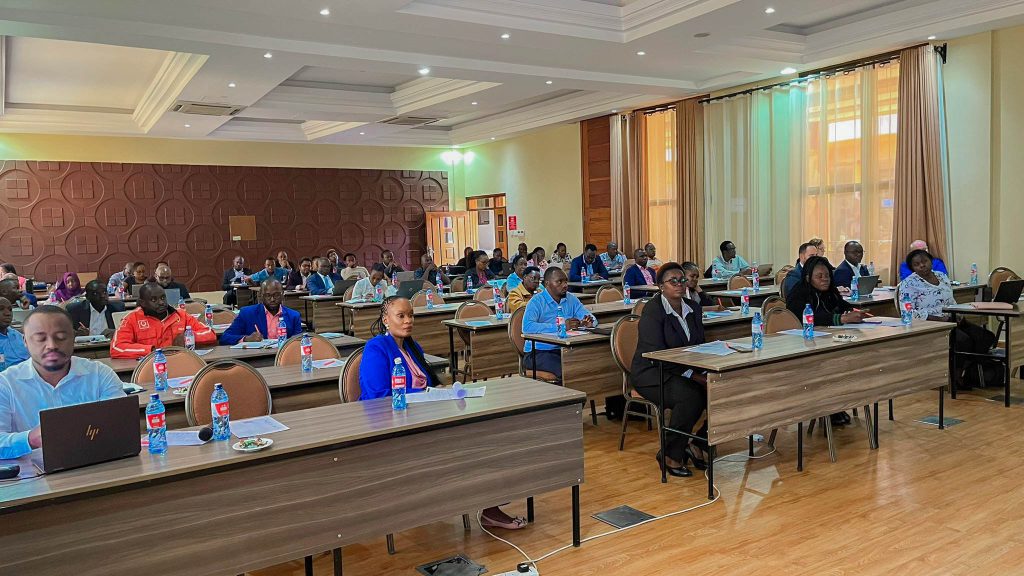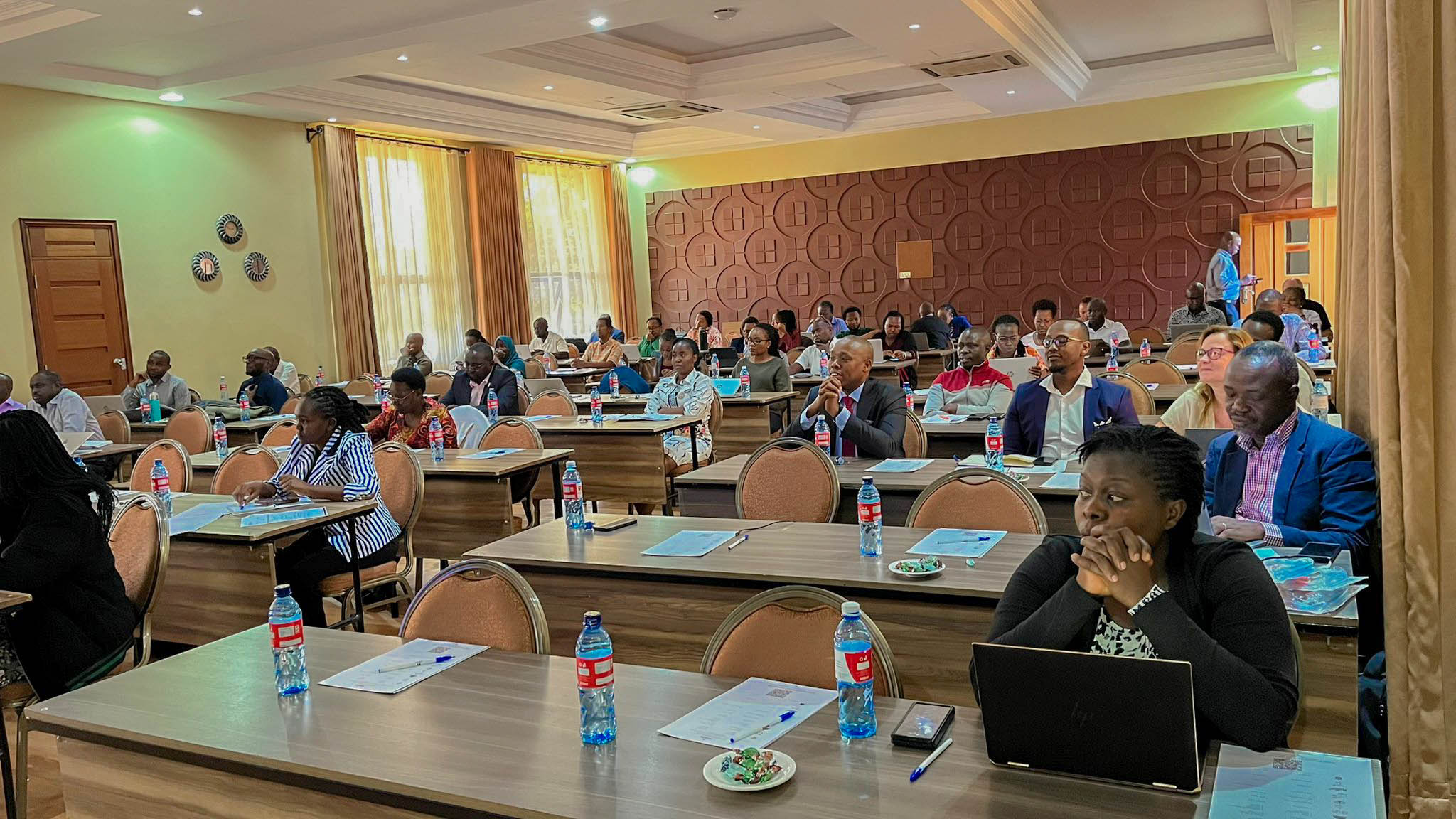The National Cancer Institute of Kenya (NCI-K), together with key partners BD (Becton Dickinson) and Pfizer, concluded a three-day co-created oncology workshop today at Lake Naivasha Resort. The session, which began on 13th October, brought together over 50 oncology professionals from Kenya’s major private, referral, and county hospitals.
The workshop was attended by strong representatives from leading medical institutions, including Kenyatta National Hospital (KNH), Moi Teaching and Referral Hospital (MTRH), Kenyatta University Teaching, Referral, and Research Hospital (KUTRRH), Coast General Teaching and Referral Hospital, Garissa Referral Hospital, The Nairobi Hospital, Aga Khan University Hospital, and MP SHAH. These Kenyan professionals engaged directly with experts from BD’s Dubai and South Africa offices, as well as Pfizer’s regional team, reinforcing a joint commitment to innovation, safety, and equitable access in cancer care.

Festus Kamau, from BD, demonstrating the use of PICC and PORTS (vascular access management devices)
The primary focus of the workshop was the mainstreaming of cancer health products and technologies across the end-to-end supply chain, ensuring that Universal Health Coverage (UHC) is realized through accessible, available, and affordable quality reagents, medical supplies, and drugs. This commitment is anchored by critical access programs, including the Memorandum of Understanding (MoU) signed between the Pfizer Accord for a Healthier World and the Ministry of Health (MoH). These programs have already led to a significant reduction in the cost of cancer care, covering novel therapies based on current evidence. Additionally, BD ensures the availability of essential oncology-related products such as specialized cannulation devices and biopsy collection tools.
A highlight of Day Two was a dedicated breakout session on Oncology Quantification, led by Mr. Geoffrey Magwi from KEMSA, which provided an opportunity for structured quantification of oncology molecules across the participating facilities. The session underscored KEMSA’s critical role in ensuring the last-mile supply of oncology medicines to both public and private sector facilities. Through this session, participants explored harmonized approaches to forecasting, procurement, and distribution to ensure uninterrupted access to quality cancer medicines.

Participants actively follow the session presentations
A high-level panel discussion on “National Frameworks for Oncology Medicines and Biosimilars” was another centerpiece of the event, featuring experts from the Directorate of Health Products and Technologies (DHPT), the Pharmacy and Poisons Board (PPB), the Social Health Authority (SHA), KEMSA, and the oncology fraternity. The discussion highlighted the urgent need for Kenya to develop a national biosimilar framework to ensure the quality, safety, and cost-effectiveness of oncology medicines, aligning with the country’s broader access and regulatory goals.
Dr. Michelle Nguu from the National Cancer Institute of Kenya emphasized the importance of transitioning from dialogue to implementation — particularly in operationalizing strategies discussed during the workshop. She stressed the Institute’s commitment to supporting structured coordination, evidence generation, and technical guidance to enhance oncology service delivery. Dr. Nguu also announced the formation of a BD-led Technical Working Group to pilot vascular access management guidelines in one of Kenya’s public hospitals, focusing on the clinical application of Peripherally Inserted Central Catheters (PICCs) and implanted ports to improve patient safety and treatment outcomes.
The workshop was officially closed by Dr. Elias Melly, CEO of the National Cancer Institute of Kenya. In his keynote address on “Strengthening Cancer Care in Kenya,” Dr. Melly commended the progress achieved under the National Cancer Control Strategy (NCCS) 2023–2027 and reaffirmed NCI-K’s commitment to advancing collaborative frameworks that improve equitable access to quality oncology care nationwide.
The three-day event concluded with a clear synthesis of lessons and priorities, driving forward the collective goal of building a harmonized, evidence-driven, and patient-centered approach to cancer care delivery in Kenya.

Leave a Reply